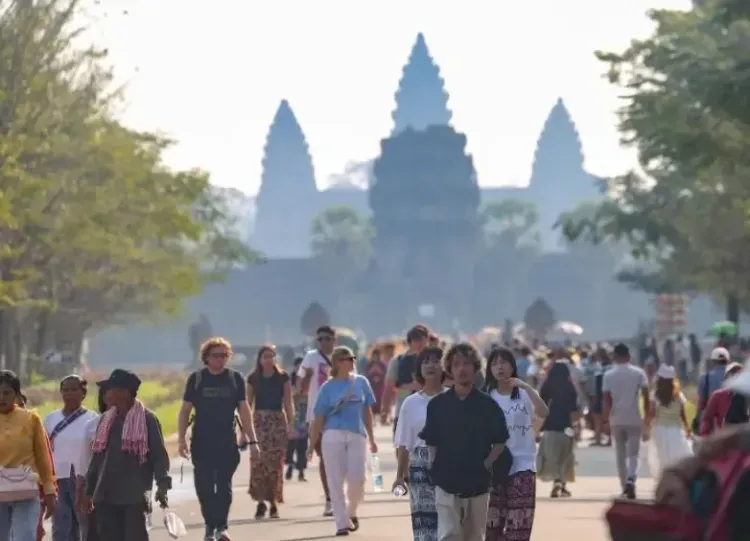Regional and Bilateral FTAs Propel Cambodia's Economic Growth: Ministry Insights

Synopsis
Key Takeaways
- Regional and bilateral FTAs enhance market access.
- Signatory to ASEAN and RCEP agreements.
- Cambodia's economic growth projected at 6.3% in 2025.
- Goal to exit LDC status by 2029.
- Access to a market of 2.3 billion people via FTAs.
Phnom Penh, Jan 22 (NationPress) Regional and bilateral free trade agreements (FTAs) have facilitated market diversification, significantly contributing to Cambodia's economic growth and development, as stated by a senior official from the Ministry of Commerce on Wednesday.
Tekreth Kamrang, who serves as a secretary of state at the Ministry of Commerce, highlighted that Cambodia is a signatory to the ASEAN (the Association of Southeast Asian Nations) FTA, the ASEAN-plus-one FTAs with its dialogue partners, and the Regional Comprehensive Economic Partnership (RCEP) agreement.
Additionally, the nation has established a bilateral FTA with China, South Korea, and the United Arab Emirates, as reported by Xinhua news agency, citing Tekreth Kamrang.
"We are actively negotiating with other potential partners to gain new market access for our products," Tekreth Kamrang mentioned during a speech at a Cambodia-Philippines business forum in Phnom Penh.
According to Kamrang, Cambodia's economy experienced a growth rate of 6 percent in 2024 and is projected to reach 6.3 percent in 2025.
"These encouraging trends are laying the groundwork for Cambodia to exit the status of Least Developed Countries (LDCs) by 2029 and to fulfill our ambition of evolving into a high-income country by 2050," she elaborated.
Hong Vanak, the director of the international economics department at the International Relations Institute of Cambodia under the Royal Academy of Cambodia, emphasized that RCEP and other FTAs are vital for the sustainable trade and economic growth of Cambodia in the long term.
"These free trade agreements have granted access for Cambodian products to a vast market comprising approximately 2.3 billion people," he stated to Xinhua.
Effective from 2022, RCEP includes 15 Asia-Pacific nations, comprising 10 ASEAN member states—Brunei, Cambodia, Indonesia, Laos, Malaysia, Myanmar, the Philippines, Singapore, Thailand, and Vietnam—along with five trading partners: China, Japan, South Korea, Australia, and New Zealand.









